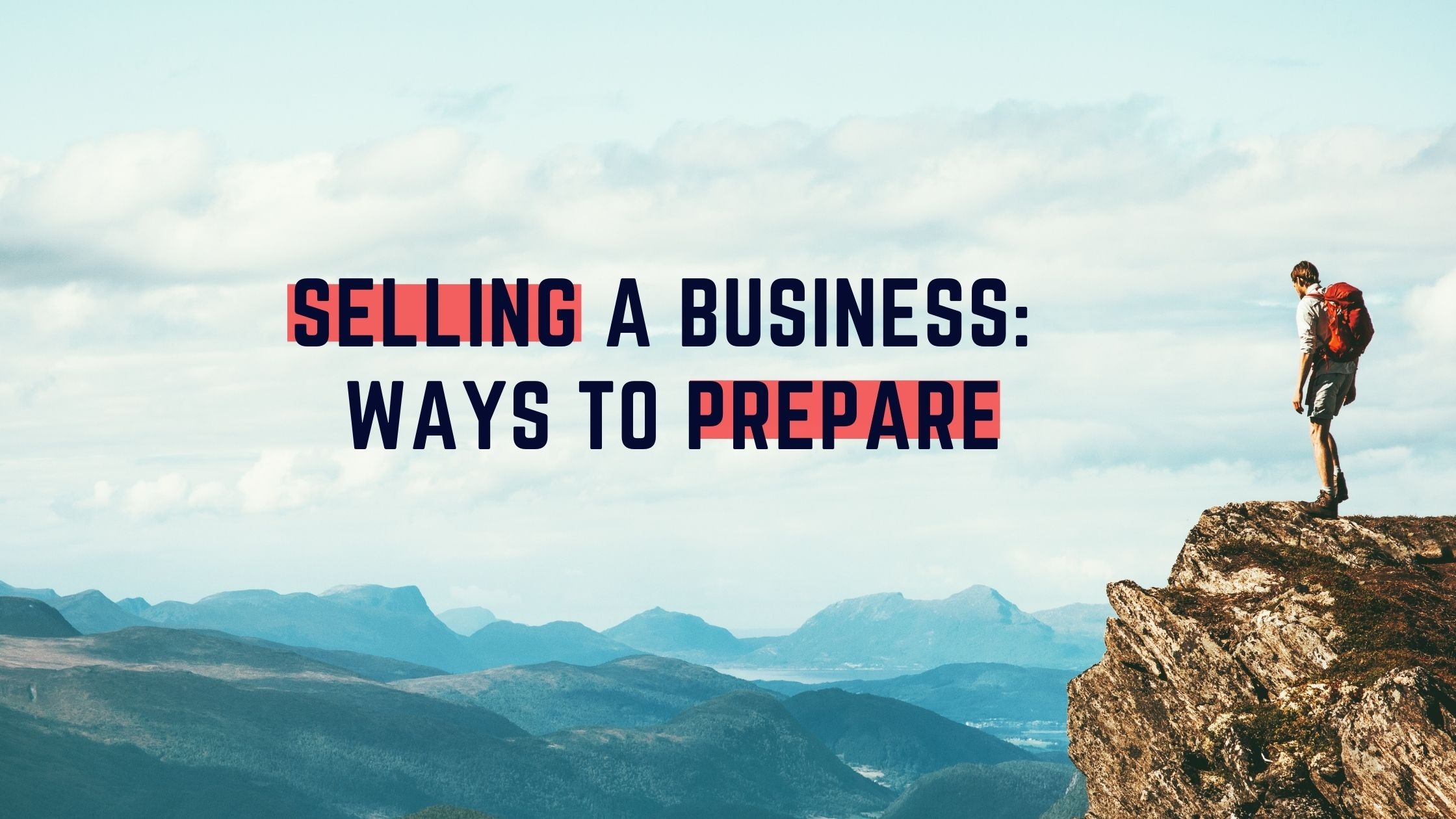Selling a business ain’t for sissies. And if you don’t know how to prepare for the process, if success comes at all, it could be a painful journey.
Every business that doesn’t fail will eventually be sold – everyone. If you’re a business owner, you must realize that fact – and you can’t prepare early enough for this inevitability.
If you’re a business broker, this is a talk you should be having with every business owner that you meet. Their business will almost certainly be sold at some point. They would likely want to both control the process and prepare the business so as to maximize its value.
There are certain categories of preparedness. Let’s take a look at some of the most important
“Why Are You Selling?”
Every potential buyer I’ve encountered since founding Worldwide Business Brokers in 2001 has, at some point, asked our client this question.
You don’t want to say that there’s too much competition in the marketplace or that your employees don’t show up for work or that your suppliers are shorting you.
Your answer should be more along the lines of, “I’m ready to retire”; or “My wife/husband and I have long dreamed of starting an armadillo rescue operation in Arizona and we feel now is the time to make that move.”
You could say you want to sail around the world before you get too old or simply that you’re ready to slow down.
The point here is to realize that something about the business or the market may be discouraging to you but be seen as a challenge by a buyer – a way to increase the value of what that buyer is buying.
Get a Valuation Done
If you don’t know what your business is worth, you’ll either leave money on the table or own that business for a lot longer than you want to.
Get a professional to value your business. There are certified business appraisers out there that can do the job but you can also get the valuation you need from a professional business broker, preferably one who has a Certified Business Intermediary (CBI) designation.
You want to hire someone who has been trained in the practice of valuing businesses.
And for goodness sake, don’t complain about paying for this! A proper valuation can involve 30-50 hours of research, analysis, calculation and the drafting of the final report. My guess is you’re unlikely to work for 50 hours for free. Don’t expect a professional business broker to do so.
Gather and Organize the Paperwork
Any rational buyer will want to know pretty much everything about your business; not only it’s current condition but also its history.
The basics here are:
- Financial statements (3-5 years)
- Tax returns (3-5 years)
- Lease
- Contracts
- Employee records
- A list of assets, tangible and intangible
- Inventory
- Accounts payable and receivable.
But besides these basics, develop a narrative about the business. Buyers want to hear the story
- Why did you start the business?
- What challenges have you overcome?
- What goals have you reached?
Throw in a little humor – and a little personality.
Such a narrative doesn’t have to rival Tolstoy’s War and Peace. Two pages that can be added to the marketing materials may be sufficient. But be prepared to be asked about this during face-to-face meetings – and feel free to expand on the written narrative. People, in general, like to know the history of the business they’re considering buying.
Get personal. We’ve found that adding a narrative stimulates conversation and makes everybody in the process see others as more human.
Learn How to Maintain Confidentiality
You’ve GOT to keep the fact that your business is for sale confidential. If it becomes public knowledge, your competitors will take notice.
It may also discourage your employees and affect the overall morale of the workplace. Not to mention, this information can travel to your customers. Will they continue to use your services if they know your company is for sale?
A professional business broker knows how to market a business to the widest possible audience while keeping the identity of the business confidential.
I can’t stress enough the importance of confidentiality in the marketing and sale of a business. Even smart buyers will want the transfer to stay confidential, at least for some period of time, after the sale.
Call in the Pros
As I said at the beginning of this epistle, selling a business ain’t for sissies.
A business owner trying to sell his or her own business is like a dentist trying to replace his own knee. You’re good at what you do. Don’t pretend to be good at what you DON’T do.
In order to get the best outcome when selling a business, you have to understand how to structure the deal properly, how taxes factor into that structure, how financing the acquisition works and how it can be massaged to your benefit.
How can you reduce capital gains taxes? How can you protect yourself from ongoing liability – from everything from the business’s creditors to environmental issues?
All these things and more require talent experienced in the purchase and sale of businesses. Make a list of who you need to call to line that talent up before you need it.
Is Your Business Finance-able?
Taking care of this during the preparation stage will go a long way toward making the transaction less emotionally fraught. There are two ways to do this. This says nothing about the buyer’s creditworthiness but speaks volumes about the business’s appeal to buyers.
Second, wherever you are, speak to your banker.
If you’ve been with one bank or banker as you’ve grown the business, your banker will have a great deal of familiarity with your business and a pretty good sense of its stability and longevity. Your banker is very likely quite keen to keep the business as a client once you transition on to the next phase of your life.
Arguably, your banker has a great deal of motivation to help make the transition smooth. They may even be willing to help you vet the buyers.
The Bottom Line
If you want to sell your business and want to get the highest return for all the work you’ve put in to building it, you must spend time getting it prepared – from the essential documentation to its physical appearance. And this doesn’t even include the need to get yourself ready for the sale.
Such preparation involves anticipating what a reasonable buyer will want to know and what questions he or she is likely to ask. When selling a business, it’s best to enlist the help of professionals with the experience to prepare you for the process.
If you have any questions or comments on this topic – or any topic related to business – I’d like to hear from you. Put them in the comments box below. Start the conversation and I’ll get back to you with answers or my own comments. If I get enough on one topic, I’ll address them in a future post or podcast.
I’ll be back with you again next Monday. In the meantime, I hope you have a safe and profitable week.
About the author
Joe – Founder of Worldwide Business Brokers



